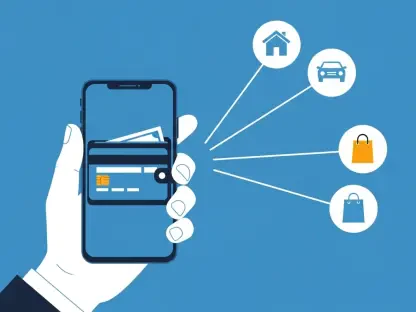The transformation of cross-border payments stands as one of the most ambitious endeavors in the financial industry today. The global financial community has been deeply engaged in discussions and strategies to overhaul the current payment infrastructure. With the G20 roadmap, the challenge lies in bolstering the efficiency, transparency, and accessibility of cross-border transactions by aligning efforts globally. At the recent EBAday 2025 event, experts from major institutions such as Accenture, CGI, Deutsche Bank, JPMorgan Chase & Co., SWIFT, and HSBC convened to explore both the obstacles and potential solutions for these systemic inefficiencies. As panelists unraveled the complexities underlying this mission, it became apparent that success hinges not on mere technological progress but on developing consistent global standards and frameworks.
Addressing Systemic Challenges
One of the pivotal discussions centered around systemic challenges that impair cross-border payment efficiency. Fragmented infrastructure, diverse regulatory environments, and variations in country-specific practices contribute significantly to the inefficiencies experienced in the current system. Sara Amara of HSBC highlighted the critical hurdles, describing cross-border payments as “too slow, too expensive, and too exclusionary.” Such inadequacies have far-reaching consequences, warranting structural changes instead of mere tactical adjustments. This sentiment was echoed by other panelists who concurred that the roadmap could serve as a guiding principle for achieving more transparent payment processes.
The conversation also emphasized the need for interoperable systems that prioritize cohesion over isolated innovation. Karyna Hutarovich from Deutsche Bank pointed out disparities in the adoption and implementation of global standards, such as ISO 20022. While these standards have gained recognition, their variable application results in inconsistent practices across different countries and companies. This inconsistency hinders the overall progress of cross-border payments and underscores the necessity for universally applied standards. Increased collaboration and global adherence to established standards could enable true advancement in this arena.
Exploring Effective Solutions
Beyond identifying the challenges, the discussion at EBAday 2025 delved into potential solutions that could redefine cross-border payment processes. Real-Time Payment (RTP) systems emerged as a promising strategy, enabling transactions to be finalized locally and potentially reducing reliance on costly and risk-laden traditional networks like SWIFT. Ainsley Ward of CGI highlighted the advantages of RTP systems in facilitating quicker and secure settlements, helping to streamline processes that currently lag due to regulatory bottlenecks and infrastructure fragmentation.
Further analysis revealed that technologies needed to enhance cross-border payments are already in existence; the actual barrier lies in the intricate landscape of regulations hampering streamlined integration. The panelists advocated for a comprehensive compliance framework that addresses fraud, standardizes processes, and fosters secure and rapid movement of capital across borders. Moreover, a unified framework could prove instrumental in mitigating risks, promoting seamless operations, and establishing credibility and trust across international channels. This would enable institutions and customers alike to experience improved financial interactions regardless of geography.
Rethinking the 2027 Target
The imminent deadline of 2027 set by the G20 roadmap was another focal point of discussion, serving as both an inspiring challenge and a realistic assessment of the industry’s capability to achieve set goals. Panelists expressed a nuanced view of this timeline, treating it more as a pivotal moment for transformation rather than a concrete endpoint. Drawing from experience, Ainsley Ward noted that while understanding these challenges might be achievable within the established timetable, pragmatic application and comprehensive solutions might require more time.
Furthermore, Karyna Hutarovich championed the idea of considering 2027 as a transformative turning point, stressing the importance of redefining how the industry approaches cross-border payments. Both private and public sectors were urged to collaborate more effectively to bridge regulatory gaps. Marianne Demarchi from SWIFT suggested that enhanced public-private cooperation could expedite efforts, particularly in addressing the last-mile pain points that often hinder payment flows. This enhancement in partnership could lead to more robust, innovative solutions, fostering improvement beyond mere compliance.
Moving Forward with Cautious Optimism
The discussion focused on systemic challenges undermining the efficiency of cross-border payments. Fragmented infrastructure, diverse regulations, and differing regional practices lead to substantial inefficiencies in the current system. Sara Amara from HSBC highlighted major obstacles, describing cross-border payments as “too slow, too expensive, and too exclusionary,” causing widespread repercussions that demand foundational changes rather than minor tweaks. This perspective was shared by other panelists, suggesting that a strategic roadmap could help establish more transparent payment processes.
The discourse further stressed the priority of interoperable systems that promote a cohesive rather than isolated approach to innovation. Karyna Hutarovich from Deutsche Bank noted disparities in adopting global standards like ISO 20022, which, while recognized, see uneven application, leading to varied practices worldwide. Such inconsistency hampers cross-border payment progress, emphasizing the need for universally applied standards. Enhanced collaboration and global conformity to these standards could drive true advancement in this field.









